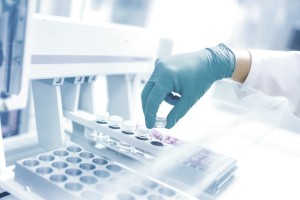Macro-Regional Development and the Health Economy: Practical Experiences, Models and Concepts for Macro-regional Collaboration between Regions and Clusters
30 May 2016
This publication presents models and concepts for collaboration between regions and clusters with a focus on health and the health economy. A key issue is how to ensure mutual benefits for both innovation leaders and modest innovators and between metropolitan and rural regions. Another key issue is how to enhance national/regional public-private investments in the health economy while ensuring alignment with the priorities and opportunities available from various EU funds (like ESIF, Horizon2020) in order to make progress on the road towards smart specialization.
Driving cross-sectoral innovation in health and life sciences – An Innovation Agenda for the Baltic Sea Region Health Economy
11 November 2013
Focus on health economy in the Baltic Sea Region can create new jobs in a growing and stable industry, reduce costs of health care challenged by demographic ageing and provide better health care which e.g. can deal with the increase of non-communicable diseases. An important step to achieve these ambitious goals was taken when ScanBalt at the annual summit for the EU Baltic Sea Region Strategy 11th to 12th November 2013 in Vilnius released an innovation agenda “Driving cross-sectoral innovation in health and life sciences”. The HealthPort innovation agenda describes a model for an “Innovation Ecosystem” serving as a framework and guideline for implementation.
Concerning the Action Plan, European Union Strategy for the Baltic Sea Region
22 September 2012
ScanBalt expresses the opinions of the association regarding the European Union Strategy for the Baltic Sea Region Action Plan (EUSBSR Action Plan) in its latest draft version (July 2012). ScanBalt would first of all like to compliment the European Union with the visionary creation of strategies for European Macro-regions. We strongly support the continued development and implementation of such strategies, not only for the Baltic Sea Region and the Danube Area but throughout Europe as an effective tool for enhanced coordination and implementation of trans-national and cross-sectorial efforts in order to reach key EU objectives. We hope that our comments are a support in the further discussions of the revised EUSBSR Action Plan.
EU Cohesion Policies and the Importance of Macro-Regions and Regional Clusters for Smart Growth and Smart Specialization
17 March 2011
The Baltic Sea Region (BSR) is based on stable welfare systems and has since long focussed on the built-up of a sustainable, knowledge based economy. Regional and national innovation systems within the BSR are internationally competitive having developed to acknowledged models for other regions and the BSR is the most innovative region in Europe.However, BSR shares with the rest of EU challenges like economic disparities and lack of cohesion between the regions, competitiveness, health and health care costs, demographic development (ageing), environmental threats and climate changes and need for alternative sources of energy. ScanBalt BioRegion gives recommendations on how to overcome these challenges.
Healthy Ageing: From Biological Fundaments to Clinical Solututions
18 February 2011
Ageing is one of the grand societal challenges for the forthcoming decades. Due to the post-war baby boom, the ever-increasing life expectancy and dropping birth rates, the proportion of elderly people is steadily increasing. Although healthier than previous generations, tomorrow’s elderly will ultimately require (complex) care for chronic disorders and multi-morbid states. For this reason, the emphasis of ScanBalt BioRegion and the EU Baltic Sea Region strategy’s flagship ScanBalt Health Region for the coming years will be on Healthy Ageing: growing older in a healthy and active way. ScanBalt BioRegion/Health Region gives recommendations on how to meet the challenges within ageing.
EU Framework Programme 8 and the Role of Macro-Regions
20 January 2011
The Baltic Sea Region shares with the rest of EU challenges like health and health care costs, demographic development (ageing), environmental threats and climate changes and need for alternative sources of energy. These grand societal challenges are not restricted to single regions or single research areas and are highly complex and closely interconnected. An example can be that facing the challenges of health also means to face the challenges of a healthy environment including development and implementation of non-fossil sources of energy and the existence of non-polluted marine and river waters; the availability of healthy nutrition and sustainable agricultural production. ScanBalt BioRegion gives recommendations on how to use EU FP 8/Horizon2020 to meet the challenges.
Smart Growth – Bridging Academia and SME´s in the Baltic Sea Region
15 August 2009
ScanBalt BioRegion has developed recommendations on how to strengthen SME development based on trans-national cluster collaboration. The recommendations are a step towards practical implementation of the EU Baltic Sea Region strategy, including internationalisation and development of the clusters.
ScanBalt News
17 March 2025
LifeScience4EU Conference 2025 | 15-16 May | Krakow












